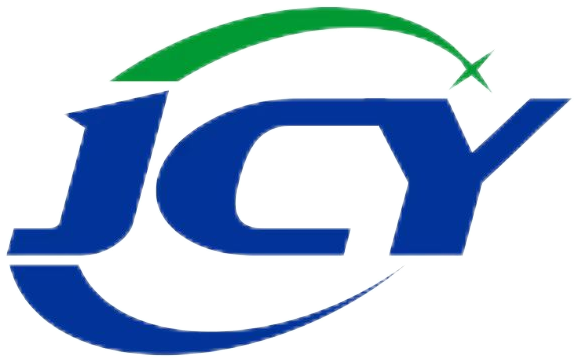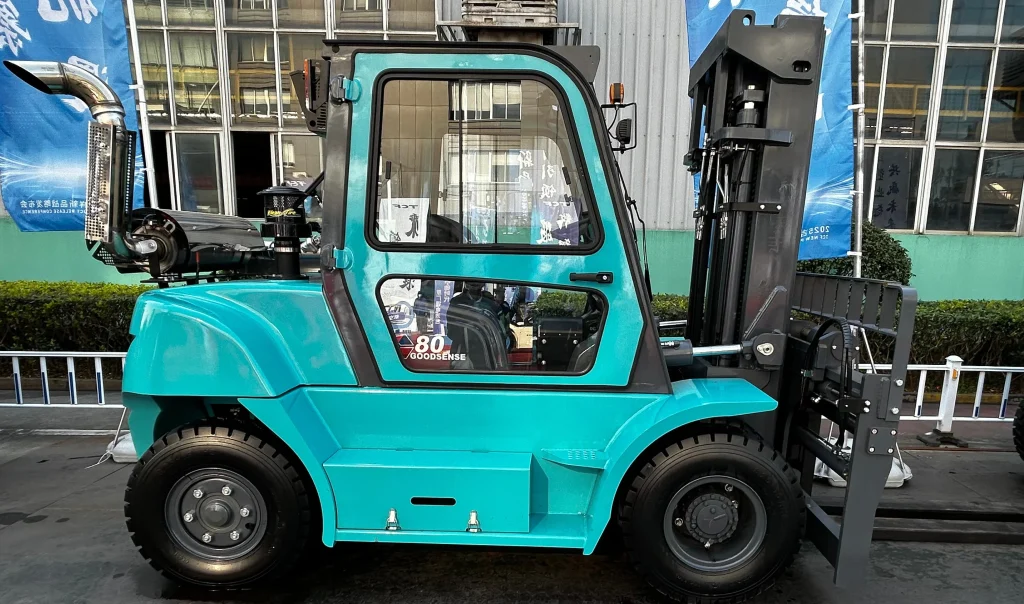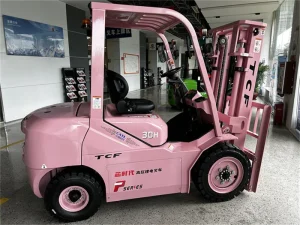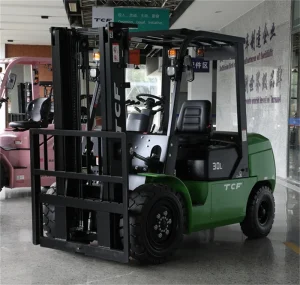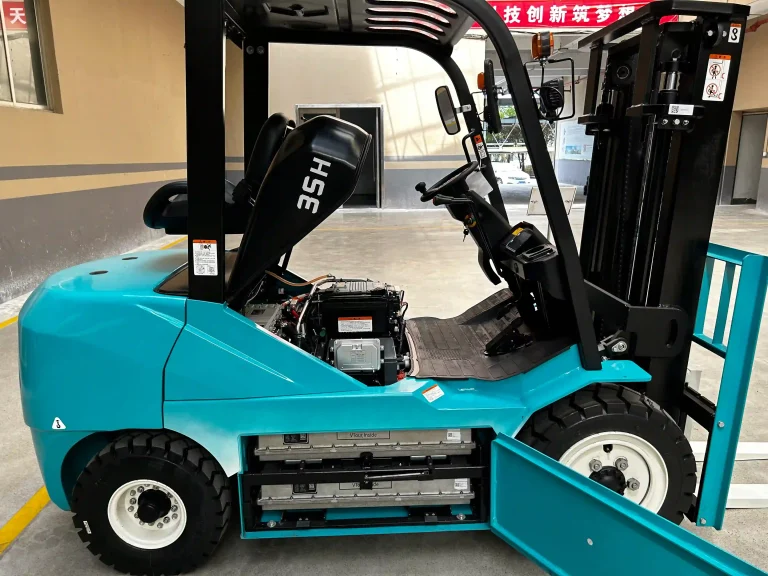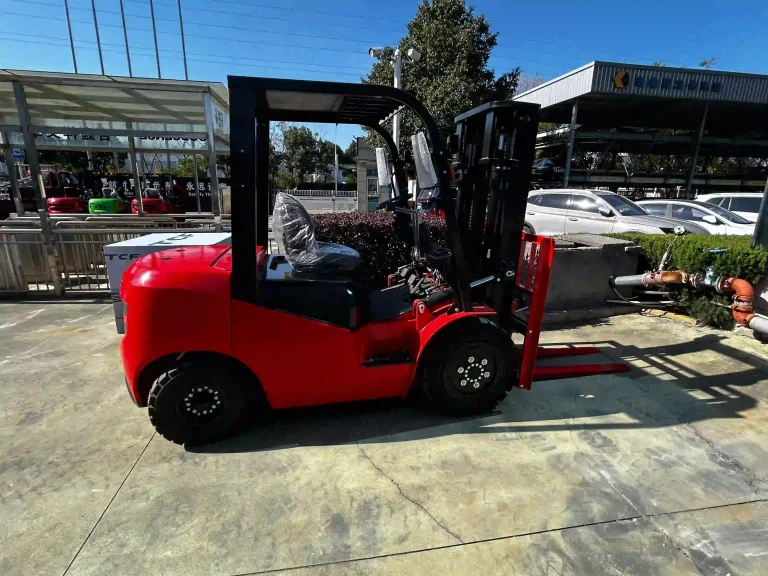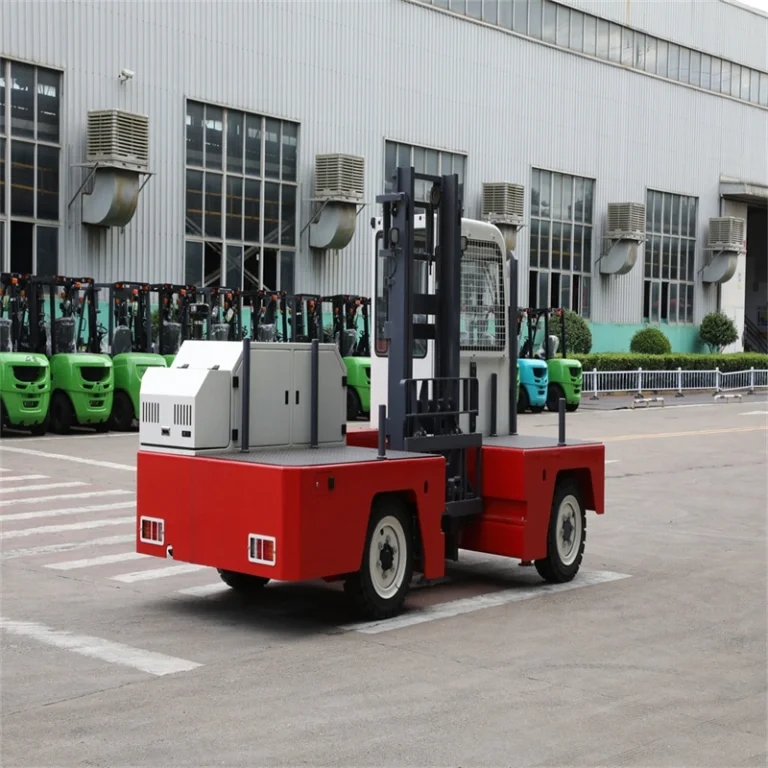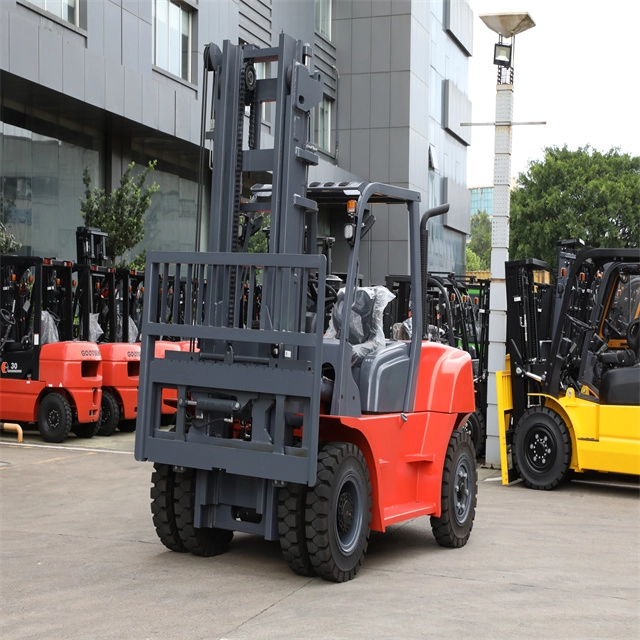Exploring the Basics of Electric and Diesel Forklifts
Forklifts are utilized for transferring goods and material both in industries and warehouses. Options regarding diesel forklifts will have to be opted while keeping efficiency, environmental concern, and cost control measures in mind. It would be of immense help to make an knowledgeable decision if the characteristics of both types are kept in mind.
Key Features of Electric Forklifts
Electric forklifts powered by electricity have become increasingly popular due to their friendliness as they produce no emissions and operate quietly making them ideal for indoor environments. An excellent illustration of these benefits is the i series 3 wheel forklift manufactured by JinChengYu which can handle loads ranging from 1, to 2 tons. These electric forklifts come equipped with high capacity lithium ion batteries that can be charged quickly and have a lifespan with lower maintenance requirements, than traditional lead acid batteries do so they run more efficiently in the 3 to 3. ton weight range and are designed for energy efficiency and compactness to maneuver easily through narrow aisles..
Key features include:
- Lithium-Ion Battery: Faster charging and longer lifespan.
- Load Capacity: Suitable for medium-duty applications.
- Energy Efficiency: Low energy consumption.
- Compact Design: Enhanced maneuverability in confined spaces.
- Advanced Safety Features: Anti-rollback, overload protection, LED lighting.
- User Comfort: Ergonomic controls and adjustable seating.
Key Features of Diesel Forklifts
Forklifts that run using diesel are recognized for their toughness and lasting power. They are commonly chosen for tasks that demand lifting heavier loads efficiently, despite emitting higher levels of noise and emissions when compared to electric versions.
Key features include:
- High Power Output: Suitable for heavy-duty tasks.
- Durability: Designed for rugged outdoor use.
- Long Operating Hours: Extended operation without frequent refueling.
- Higher Emissions: Not suitable for indoor or environmentally sensitive areas.
Comparing Performance and Efficiency
The effectiveness and productivity of forklifts play a role in shaping business decisions as companies evaluate various diesel models to determine the best fit for their particular requirements.
Operational Efficiency and Cost Analysis
| Feature | Electric Forklift | Diesel Forklift |
| Energy Consumption | Low energy consumption; cost savings over time | Higher fuel costs; less energy-efficient |
| Maintenance Requirements | Lower maintenance due to fewer moving parts | Higher maintenance needs due to complex engine systems |
| Operating Costs | Reduced operating costs; efficient motors | Increased operating costs; fuel price volatility |
Electric forklifts, like the E Series models weighing between 3000 kg and 3500 kg, provide benefits by maintaining the performance of diesel counterparts while promoting eco-friendly practices.
Environmental Impact and Sustainability
| Aspect | Electric Forklift | Diesel Forklift |
| Emissions | Zero emissions; ideal for indoor use | High emissions; not suitable for enclosed spaces |
| Noise Levels | Low noise levels | High noise levels |
| Sustainability | Supports sustainability initiatives | Less environmentally friendly |
Products such as the 3-ton forklift showcase sustainability through features like a user-friendly high-voltage lithium battery and a lasting green finish that demonstrates a dedication to environmental stewardship.
Evaluating Workplace Safety and Comfort
Safety and comfort play roles in tasks related to handling materials, with each type of forklift providing unique benefits. These benefits can improve the overall working conditions.
Safety Features and Regulations
Electric-powered forklifts are equipped with safety functions, such as electronic stability control and automatic speed reduction during turns to prevent accidents. They also have operator presence detection systems to ensure safe operations in certain work settings.
Although older diesel forklifts may lack the safety features found in newer electric models, they still meet industry safety regulations thanks to their robust build and dependable braking systems.
Operator Comfort and Ergonomics
Forklift designs have been improved to focus on making operators comfortable by adding seats and spacious cabins with easy-to-use controls and reduced vibrations for a smoother ride experience at work sites. Ensuring operator comfort is crucial during work hours. Hence, having air conditioning in forklifts helps reduce fatigue significantly. For instance, the 8-ton to 16-ton forklift models powered by lithium-ion batteries are designed with operator comfort in mind in their cabin layout.
When considering diesel forklifts and their equivalents in terms of operator comfort and longevity features, focus on durability while also incorporating functionalities for handling demanding tasks.
Make sure to compare diesel forklift options at JinChengYu or elsewhere when deciding on the fit for your business needs. Consider how they match your operational objectives and safety standards, while also prioritizing sustainability and employee comfort to boost productivity and efficiency in your company.
Considering Long-Term Investment Value
Initial Investment Costs
When assessing the worth of forklifts in the long run, it’s crucial to take into account their expenses as a key factor. Electric forklifts commonly come with a higher cost because of their advanced battery technology and complex electronic systems. Nevertheless, they can lead to cost savings in the future by using less power and requiring minimal upkeep. Conversely, diesel forklifts usually have a lower buying price but might result in increased ongoing expenses linked to fuel and maintenance.
Longevity and Resale Value
Electric forklifts are famous for their durability and dependability in the industrial world. Among them are those powered by lithium-ion batteries, which are highly esteemed for outperforming models running on lead-acid batteries. The extended lifespan of these models can significantly impact their resale value. Take the 3ton to 3.5ton E-series forklift with a lithium battery as an example. It stands as a model that offers both efficiency and robustness, making it a wise choice for long-term investments in the field of material handling equipment. Gas-powered forklifts may lose value more quickly due to engine wear and tear from use potentially resulting in a lower resale price.
Tailoring Your Choice to Business Needs
Assessing Operational Requirements
When deciding between diesel forklift options, it’s important to consider your needs and preferences carefully. Facilities that value eco-friendly and minimal noise pollution might prefer electric alternatives, such as the i-series 3-wheel forklifts ranging from 1-ton to 2-ton models. These electric options are well-suited for operating in warehouses and distribution centers with aisles that demand agile maneuverability.
In situations that call for power in challenging conditions and settings, diesel forklifts shine with their outstanding capability. Companies must take into account aspects such as load capacity, operational hours, and the working environment when selecting the appropriate forklift model to suit their requirements.
Infrastructure Compatibility
The current infrastructure arrangement is crucial in determining the forklift model for use in operations, particularly when it comes to electric forklifts that necessitate charging stations and specific electrical configurations to effectively cater to the quick-charging needs of lithium-ion batteries. The E2 series electric forklift emphasizes the significance of infrastructure by blending electric features into conventional designs to promote environmentally friendly practices.
Diesel forklifts need refueling stations or specific charging facilities like electric forklifts do. This characteristic allows them to be used in areas without established infrastructure.
Discovering JinChengYu’s Range of Products
Overview of JinChengYu’s Offerings
JinChengYu provides a selection of forklifts crafted to cater to the requirements of different industries in efficiently and effectively managing materials. Among their offerings are models like the lithium battery-operated forklifts with load capacities ranging from 8 tons to 16 tons. These models are customized to meet the needs of settings such as ports and construction sites by delivering high-capacity solutions.
In today’s business world, where sustainability and efficiency are paramount concerns, it is crucial to prioritize effectively. These products stand out for their focus on saving energy, promoting the well-being of operators and incorporating state-of-the-art safety features.
Additional Warehouse Handling Equipment
JinChengYu offers a selection of forklifts and various warehouse equipment designed to improve efficiency effectively. They provide a range of tools that work in conjunction with their forklifts to meet requirements such as material handling, cargo stacking and order processing in warehouses and manufacturing facilities.
By incorporating JinChengYu’s range of products with their state-of-the-art electric forklift solutions, companies can enhance their material handling operations to boost efficiency and attain sustainable growth in competitive industries, while also promoting environmental goals.
